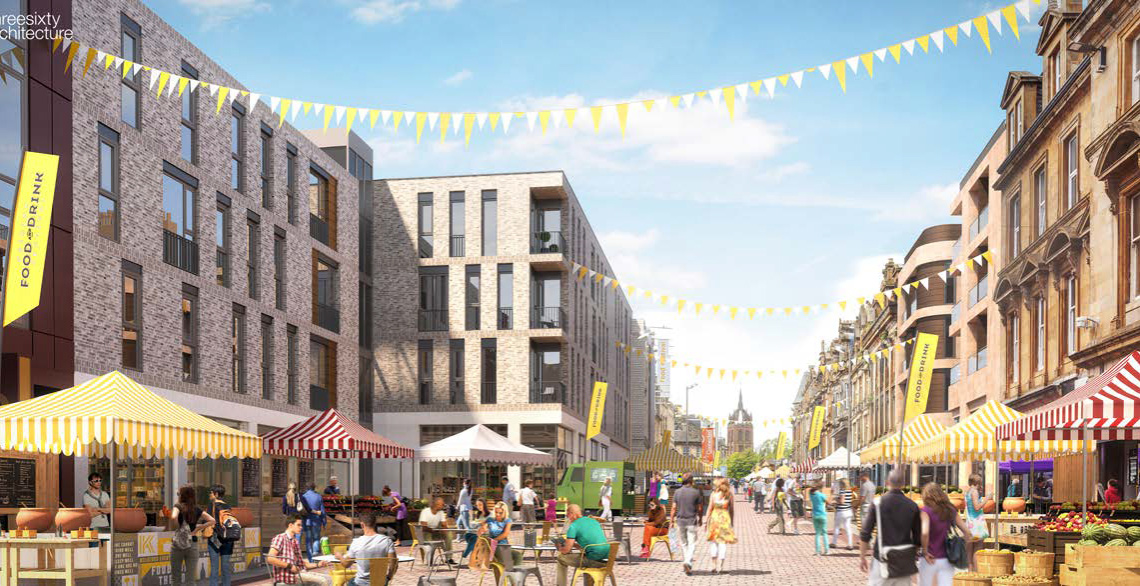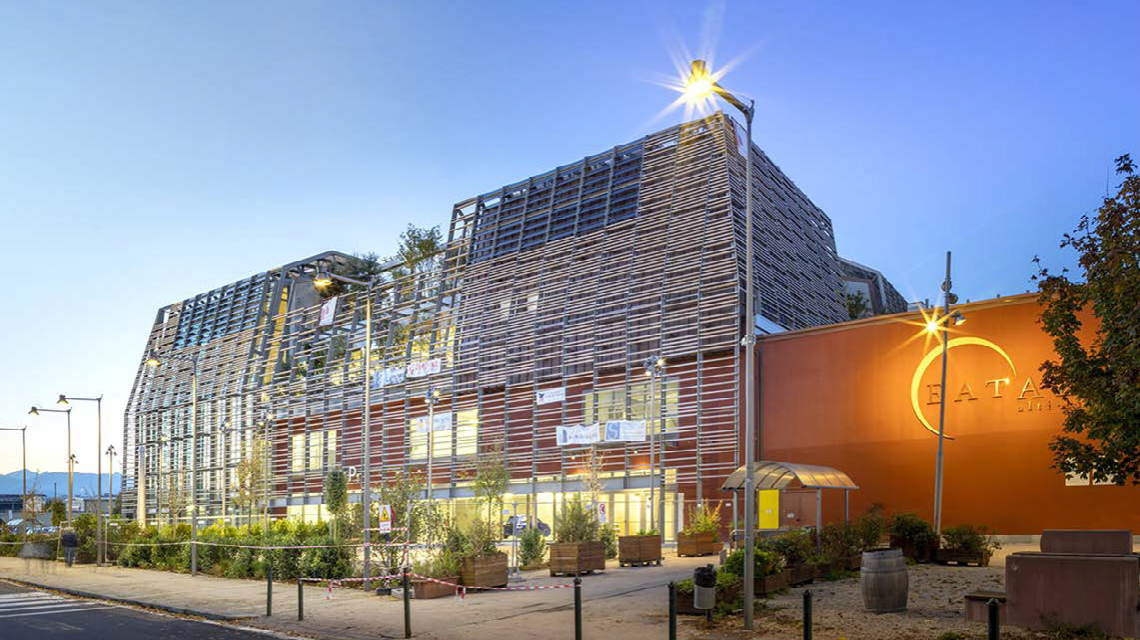Increasingly sustainability is being engineered into building construction and fabric, but how can landlords follow this through with its occupiers? One of the best examples of a sustainable retail building is the Green Pea Shopping Mall in Turin, which opened in December 2020 from the investors behind Eataly. The eco-friendly shopping hub occupies 15,000 sqm of retail space across five floors and only offers sustainable products “created in harmony with nature” related to energy, movement, interior décor, clothing and leisure; the fashion floor is devoted to sustainable fashion brands such as Timberland, Patagonia, Ecoalf, North Sails, K-Way, The North Face, Napapijri, and Re-Hash.

As well as sustainable interiors, the building is made only with recyclable materials such as steel, iron and glass and can be completely dismantled. Its wood
is from local forests that were destroyed during a storm in 2018 and the interior floors are made with recycled wood. The building is painted with Airlite: a paint that reduces air pollution by 88%. In addition, more than 87% of its hot water is generated by a geothermal plant and more than 88% of its thermic energy and almost 90% of its electric energy for lighting come from renewable PV sources.

The retail sector needs to drive efforts to reduce waste and encourage recycling and ethical sourcing. Based in Sweden, ReTuna Återbruksgalleria is the world’s first recycling mall where everything sold is recycled, reused, or organically and sustainably produced in a climate-smart way . Old items, too, are given new life through repair and upcycling. In 2018, the mall turned over €1.2million in recycled goods. Furthermore, ReTuna is more than just a marketplace and aims to be a public educator by organising events, workshops, lectures, theme days, and more-all with a focus on sustainability and community benefit.
The mall is owned and run by EMM, a municipalityowned company tasked with running competitive organisations in the energy and environmental sector, rather than a traditional retail landlord. However, with EEM’s ethos to deliver optimal
benefit to customers and residents, with minimal impact on the environment, this could be a good approach for local authorities that have been increasing their stakes in shopping centre assets in recent years.
Currently, these ambitious solutions are not suited to all retail environments. However, most retail places could do with incorporating some of the principals of Green Pea or ReTuna into their schemes, which will help improve sustainability goals, deliver on social value, and appeal to a growing body of ethical consumers.








